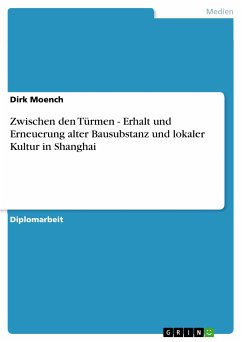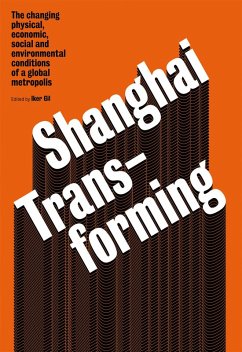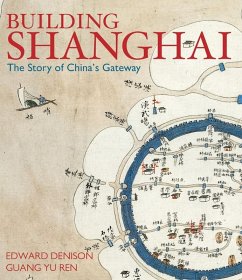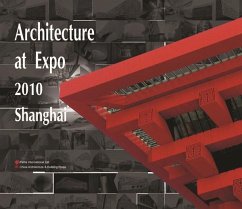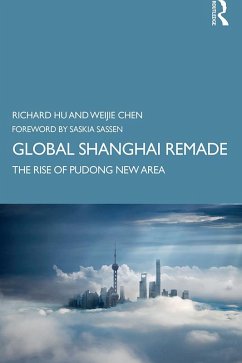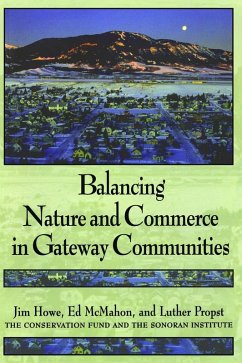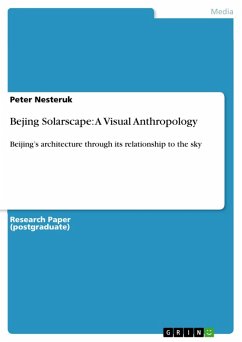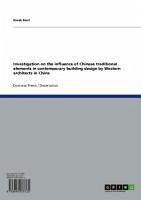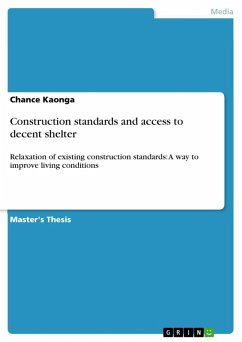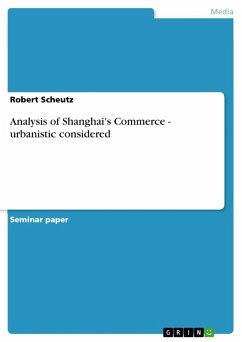
Analysis of Shanghai's Commerce - urbanistic considered (eBook, ePUB)
Versandkostenfrei!
Sofort per Download lieferbar
15,99 €
inkl. MwSt.
Weitere Ausgaben:

PAYBACK Punkte
0 °P sammeln!
Seminar paper from the year 2003 in the subject Art - Architecture / History of Construction, grade: very good, Technical University of Graz (Faculty for Architekture / Institute City Development), language: English, abstract: The Yangtze River Delta, Shanghai-Nanjing-Hangzhou is undergoing a radical upheaval process - the dimension and the speed of Shanghai's development exceeds European thinking. Between 1978 and 1990 about EUR3 billion were spent on urban infrastructure projects, in the next six years between 1991 and 1997 the investment exceeded EUR18 billion. In the early eighties the con...
Seminar paper from the year 2003 in the subject Art - Architecture / History of Construction, grade: very good, Technical University of Graz (Faculty for Architekture / Institute City Development), language: English, abstract: The Yangtze River Delta, Shanghai-Nanjing-Hangzhou is undergoing a radical upheaval process - the dimension and the speed of Shanghai's development exceeds European thinking. Between 1978 and 1990 about EUR3 billion were spent on urban infrastructure projects, in the next six years between 1991 and 1997 the investment exceeded EUR18 billion. In the early eighties the construction of the whole public mass transport system started from scratch, following the strategic neglecting by the Central Government in Beijing. Today, after the reforms of Deng Xiaoping and Jiang Zemin, a former mayor of Shanghai, it is said that the city's large construction projects are the PRC Government's 'cuddles'. 2002 about 80 urban infrastructure projects with an investment of EUR6,5 billion were under construction, supporting ¿AIR TRAFFIC ¿RAIL TRAFFIC ¿ROAD TRAFFIC and ¿SHIPPING. In my opinion the rapid changes in the transport infrastructure will change more than the map of the city or the mere building reality - it will change the city's timescale. Firstly I want to focus on the meaning of the transport issue for China's and Shanghai's economy and competitiveness. Shanghai has a great potential, but today it lacks fluency. The PRC Central Government, with it's rising conscious of China's global role, has realized this fact. The new economic and political ambition has overcome stone-age Maoism of bleeding white 'decadent' cities - Pudong New Area with China's stock exchange in Luijazui demonstrates this ambition. The strategic position on the China Sea and the estuary of the Yangtze River enables Shanghai to function as East Asia's main gate, both for domestic and supranational trade. The current deep water port and dredging projects combined with new road and rail connections to the rest of the PRC and its neighbours create the 'right flow' for growing, like the comparison of the GDP and the container throughput shows. However China's new economic 'XIAHAI' policy (promoting entrepreneurship) separates severely from the governments restrictive social control, leading to the next issue - mobility und urbanization. On the one hand the improvement of the mass transport infrastructure like the extension of six further metro lines until 2005 increases the local mobility. Today Shanghai is characterized by a high dense core and a low density outside core, such as the comparison with London shows. [...]
Dieser Download kann aus rechtlichen Gründen nur mit Rechnungsadresse in A, B, BG, CY, CZ, D, DK, EW, E, FIN, F, GR, HR, H, IRL, I, LT, L, LR, M, NL, PL, P, R, S, SLO, SK ausgeliefert werden.




